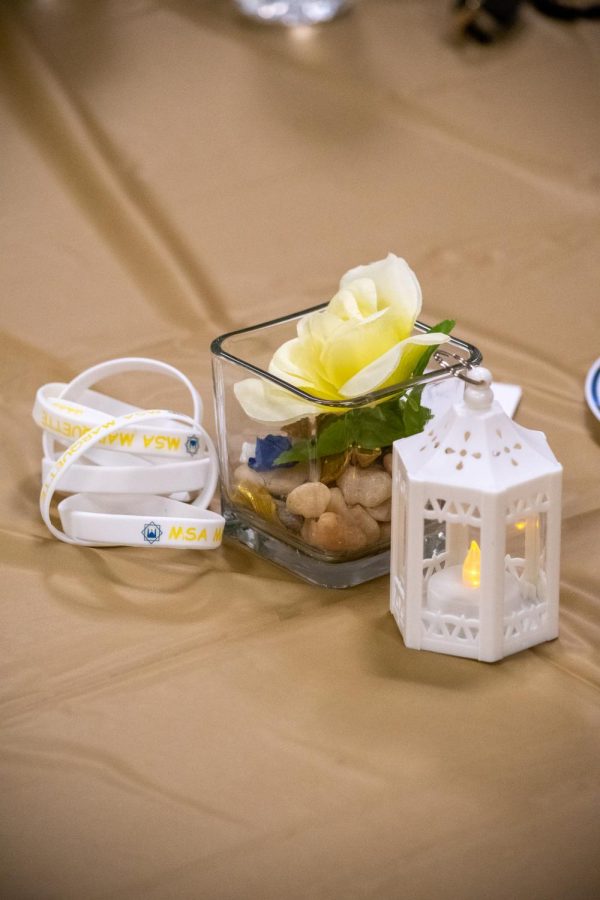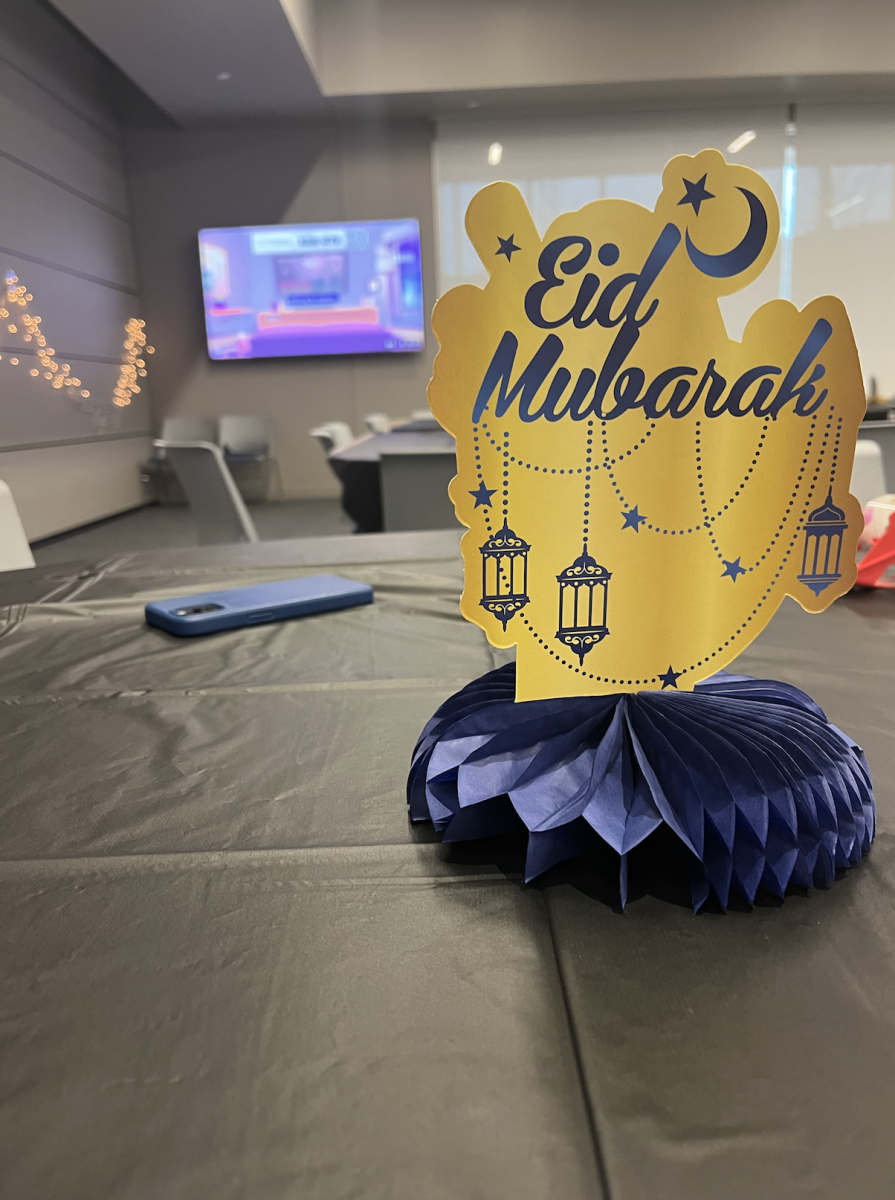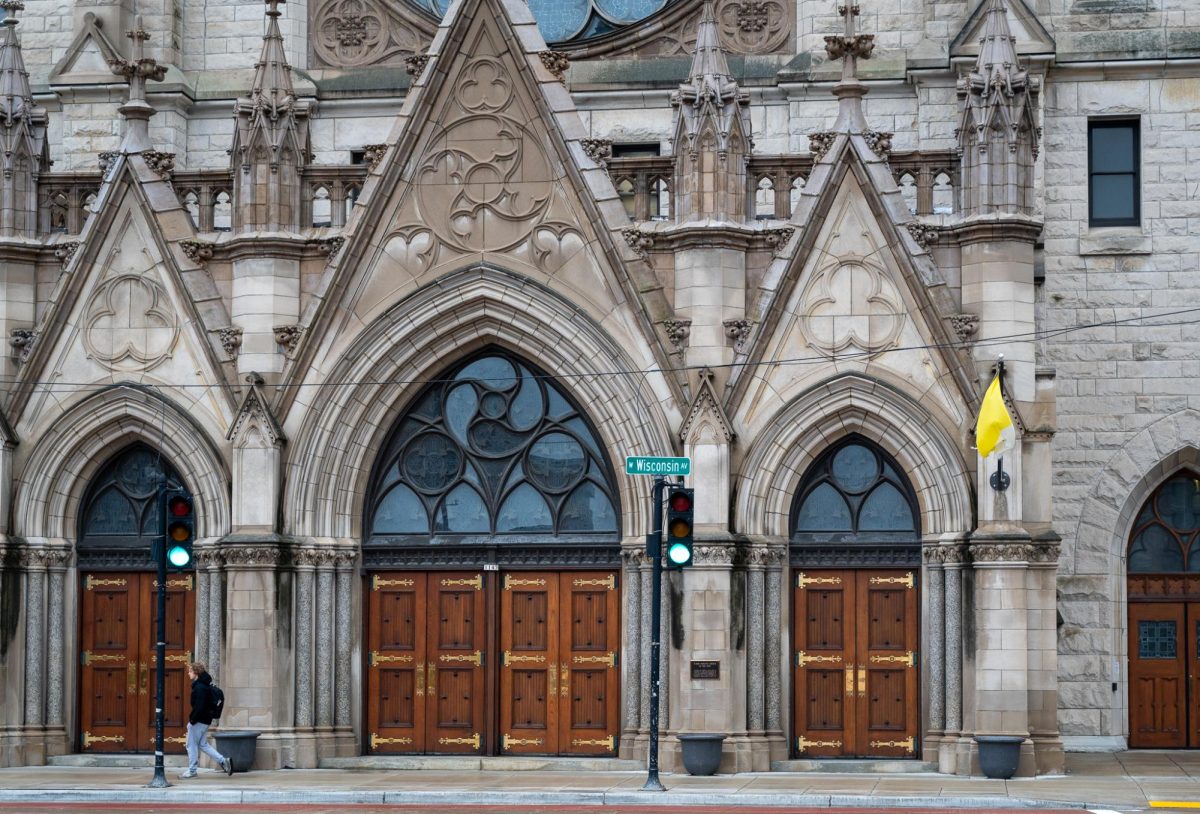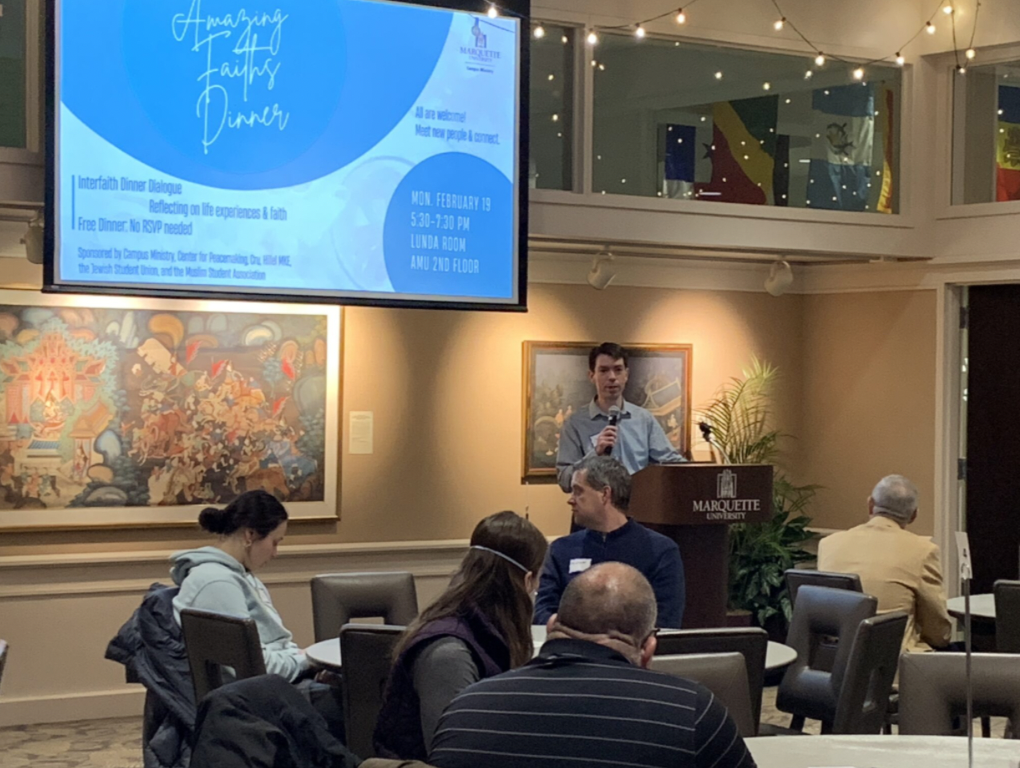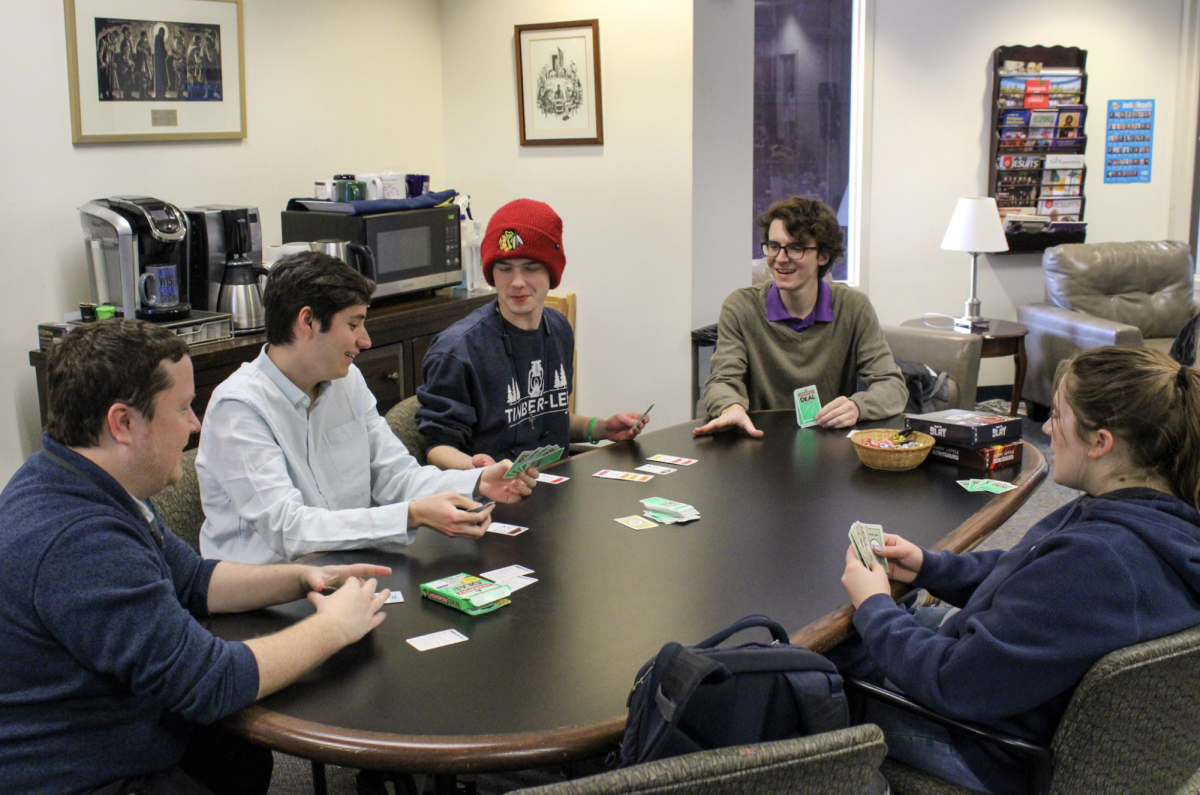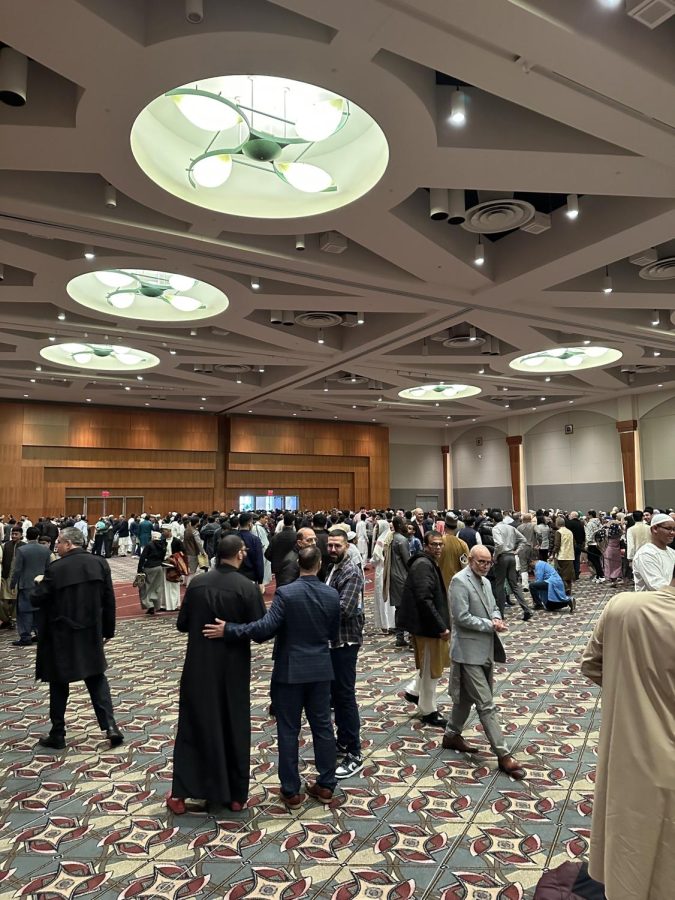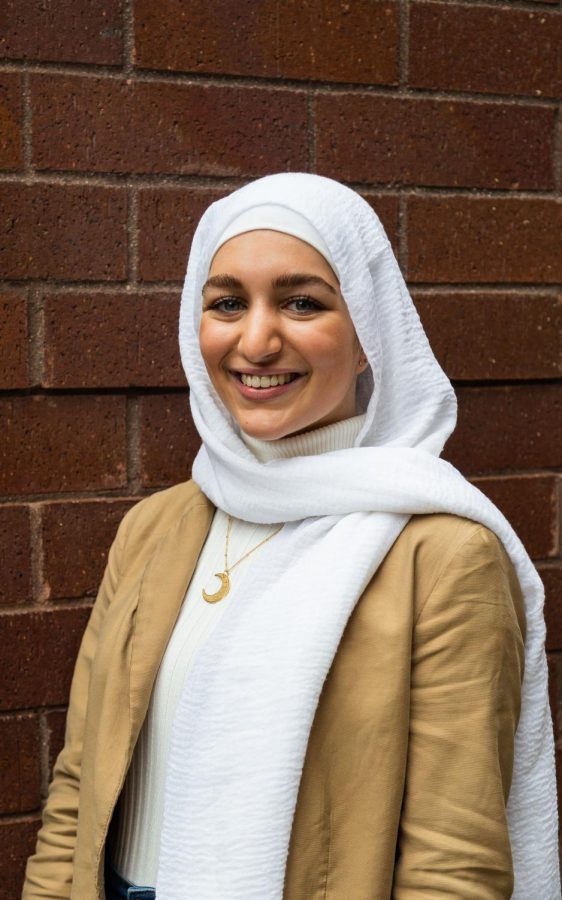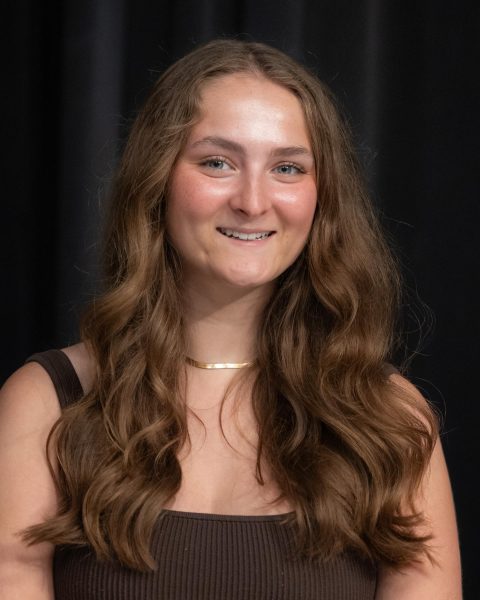Since last year, the Muslim Student Association has been trying to get Ramadan and Eid al-Fitr recognized on Marquette’s calendar.
Dana Sharqawi, a senior in the College of Arts & Sciences and former president of MSA said it’s important for both holidays to be recognized to increase awareness.
“For example, as a professor, you might see that your Muslim students are a little more tired or they might not show up to class one time,” Mortada said. “So it’s important for them to understand it’s because of Ramadan and that they are fasting for 30 days.”
Ramadan is the ninth month of the Islamic calendar — Muslims fast from sunrise to sunset. This year, Ramadan takes place from March 22 to April 20. Eid al-Fitr celebrates the end of Ramadan and translates to “the festival of breaking the fast.”
By adding the two holidays to the calendar, Leen Mortada, a junior in the College of Arts & Sciences and current president of MSA, said it takes the responsibility off of Muslim students and onto the university to raise awareness on Ramadan and Eid al-Fitr.
“I feel like because Marquette tries to promote this community of inclusion, when it’s not there [recognizing Muslim holidays on their calendar] it kind of tells Muslims that they’re not a part of that community,” Lojain Gamar, a senior in the College of Health Sciences, said.
This year, Eid al-Fitr falls on a Friday — April 21, when Marquette has classes.
Monica MacKay, university spokesperson, said as a “Catholic, Jesuit institution” Marquette acknowledges the different religious observances that people within their community follow. She said the university works to “actively support” what some religious holidays entail.
Religious observances, MacKay said, are recognized as excused absences under the undergraduate bulletin.
“The Provost and Director of Campus Ministry provide guidance to all instructors on how to work with students on missed classroom activities due to religious observances, recognizing that requesting an absence for a religious observance can be a new experience for many students,” MacKay said in an email.
MacKay also stated that students must submit their absences for religious observances to their professors as early as possible and are responsible for any missed work. She said faculty is expected to coordinate with the students and agree on an adequate decision on how to make up for missed classroom activities and work.
When MSA started trying to get Marquette to recognize the two holidays on their calendar but found themselves redirected to different people.
“I talked to [either] the president or vice-president of student affairs and then you get emailed to someone else and then someone else,” Mortada said. “There’s not a clear way to do it and we don’t really know who to reach out to.”
Sharqawi said during these redirections, MSA found themselves sitting with the respective administrator for an hour explaining their situation and providing them with all the necessary information only to find out they need to start the process again with someone different.
“It is a holiday that I feel should be recognized more than it is,” Sharqawi said. “Because right now if you were to send out a poll, I doubt half of the campus population would know when it [Ramadan] is.”
Muslim students make up about 1% of Marquette’s student body and 1.1% of the total population in the United States. However, in a study conducted by the Pew Research Center, it is estimated that Islam will be the second-largest religion in the U.S. by 2040.
Across the United States, more schools are beginning to recognize the holy month and give students the day off for Eid.
Currently, Marquette has a multi-faith calendar that shows various religious observations, but their events and academic calendar don’t depict any Muslim holidays.
Similarly, Marquette’s campus ministry calendar also does not recognize Ramadan or Eid al-Fitr either.
However, the university’s campus ministry’s Instagram did post about Ramadan March 22.
MacKay said the listed campus events within Marquette Today are not a comprehensive calendar.
“In the daily Marquette Today email correlate with either published stories or events that have been submitted to promote to the campus community,” MacKay said in an email. “If an individual or a group wants to share event details on campus relative to their religious holiday, they are welcome to do so by clicking the blue ‘submit news’ button.”
In the past, MacKay said Marquette Today has promoted events such as Jewish High Holidays and Divali.
“Some Muslim students have had an exam on Eid so they have to try to get that moved,” Sharqawi said. “It just goes back to having to reach out and do that extra step which I feel like as a Muslim on a predominantly white campus, we’re always trying to do the extra step.”
Sharqawi said to imagine if students had an exam scheduled for Easter or Christmas because having exams during Eid al-Fitr is similar for Muslim students.
Last year, Mortada said she experienced just that — having to take an exam during Eid that she could not reschedule. Because of this, she said she wasn’t able to go to the Eid prayer.
“I don’t think people understand that … it’s [Eid] a celebration, there’s still a prayer and so we’re not just staying at home with our families — we’re going to the mosque to pray,” Mortada said. “I feel like when I missed it, I was like ‘well that felt a lot different.'”
Having Ramadan and Eid al-Fitr recognized, Mortada said would speak to the overall Marquette community because there are different religions, traditions and practices within that community. She said to be a “welcoming” institution that acts on inclusion, supporting awareness is the first step.
“It’s [Ramadan/Eid] something that should be recognized and known throughout the whole campus, especially to faculty and professors just so they can accommodate to their Muslim students a lot better,” Gamar said.
This story was written by Julia Abuzzahab. She can be reached at [email protected] or on Twitter @juliaabuz


